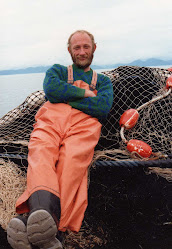**Ah, hell, here's the entire piece**
In a society of advanced technology, the very air we breathe is thick with expectations. The population paces in anticipation of taking the next step closer to Utopia. One might conclude that technological endeavors bespeak a shallow arrogance; and even though I agree that that aspect exists, I think the compulsion to discover exists independently of the desire for sudden wealth or deification.
Everyone has heard that if a man built a warehouse, he could not force himself to leave any part of it vacant. Man cannot ignore capacity. It is a physical and metaphysical impossibility to resist being drawn into a vacuum. If an answer is knowable, then goddamnit, we want to know it.
A common comment, “Why are we spending millions of dollars in space exploration when there are millions of people on this planet literally starving to death?”
My answer is this: If the number of starving people doubled what it is now, or if the cost of space exploration doubled what it is, it wouldn’t change anything. If exploration proponents completely ran out of contrived excuses, and there were no practical value whatsoever to going out there, we would go. We cannot not go.
The mountain climber who explained, “We climb that mountain because it’s there,” answered correctly. Everyone knew there was nothing up there to justify climbing to its cold and brutal top.
Outer space may offer the answers to some important questions about our planet—some relevance to our existence, but even if it did not, it would not change anything. We’re going. Whatever exists, must be touched by us—“blessed” by us. Not necessarily in arrogance. Maybe even with humility, or in reverence, like the shaky hand that finally touched the top ofMt. Everest
Rocks and dust, dead as dirt, surrounding a tiny sprig of clover, tiny in its green promise, need only sit with patience. As sure as life, the clover will reach out its diminutive tentacles—indomitably and unquestioningly—to touch the dead dirt and “bless” it. Likewise, the astronaut will risk it all to bless the black, dead silence with the living. Blackness, more expansive than the human mind can grasp, will be invaded by the strangest sound ever heard in that cold….breathing.
Everyone has heard that if a man built a warehouse, he could not force himself to leave any part of it vacant. Man cannot ignore capacity. It is a physical and metaphysical impossibility to resist being drawn into a vacuum. If an answer is knowable, then goddamnit, we want to know it.
A common comment, “Why are we spending millions of dollars in space exploration when there are millions of people on this planet literally starving to death?”
My answer is this: If the number of starving people doubled what it is now, or if the cost of space exploration doubled what it is, it wouldn’t change anything. If exploration proponents completely ran out of contrived excuses, and there were no practical value whatsoever to going out there, we would go. We cannot not go.
The mountain climber who explained, “We climb that mountain because it’s there,” answered correctly. Everyone knew there was nothing up there to justify climbing to its cold and brutal top.
Outer space may offer the answers to some important questions about our planet—some relevance to our existence, but even if it did not, it would not change anything. We’re going. Whatever exists, must be touched by us—“blessed” by us. Not necessarily in arrogance. Maybe even with humility, or in reverence, like the shaky hand that finally touched the top of
Rocks and dust, dead as dirt, surrounding a tiny sprig of clover, tiny in its green promise, need only sit with patience. As sure as life, the clover will reach out its diminutive tentacles—indomitably and unquestioningly—to touch the dead dirt and “bless” it. Likewise, the astronaut will risk it all to bless the black, dead silence with the living. Blackness, more expansive than the human mind can grasp, will be invaded by the strangest sound ever heard in that cold….breathing.

